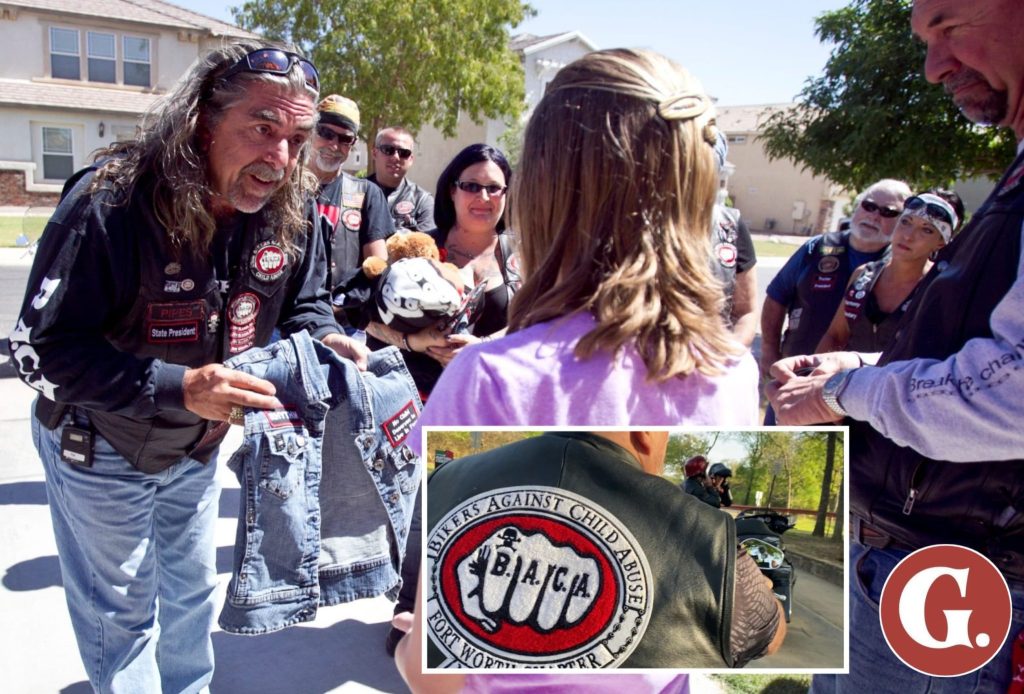This Arizona Biker Gang Isn’t What You Think — They Protect Child Abuse Victims By Guarding Homes, Going to Court, and Becoming Their Shield
If you hear the roar of motorcycles in the quiet suburbs of Arizona, your first thought probably isn’t, “Child protection.” Leather jackets, tattoos, rumbling Harleys—those images usually carry a very different kind of reputation. But in this case, you’d be wrong. Because that sound, that presence, is actually something beautiful. It means that Bikers Against Child Abuse is on patrol. And for a child who’s experienced the unimaginable, that sound might be the only thing helping them sleep through the night.
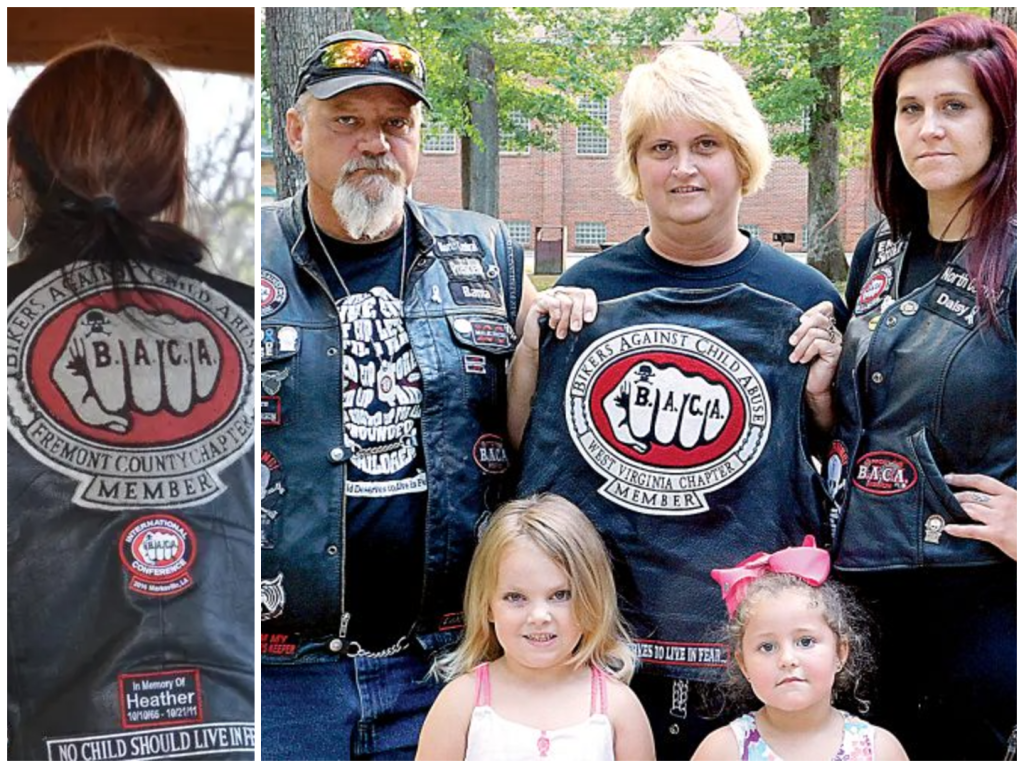
They’re called B.A.C.A. — Bikers Against Child Abuse — and yes, they look exactly like the name suggests. But the work they do is unlike anything most people could imagine. They don’t just show up for the easy moments. They’re there at 2 a.m., standing watch outside a child’s window if an abuser hasn’t yet been arrested. They’re in courtrooms, forming a wall between a terrified child and the person who hurt them. They’re in driveways when kids return home from therapy, just to make sure no threats are lurking. And they do all of this not for money, not for recognition, but because they believe that no child should live in fear.
It all started in Utah back in 1995, when founder John Paul “Chief” Lilly saw a gap in the system. Therapy was helping, but some kids were still paralyzed with fear. They needed more than counseling. They needed presence. They needed strength. So he gathered a few biker friends and began forming a network of volunteers willing to use their presence to empower the most vulnerable. Today, B.A.C.A. operates in multiple countries and across dozens of states—including several highly active chapters in Arizona.
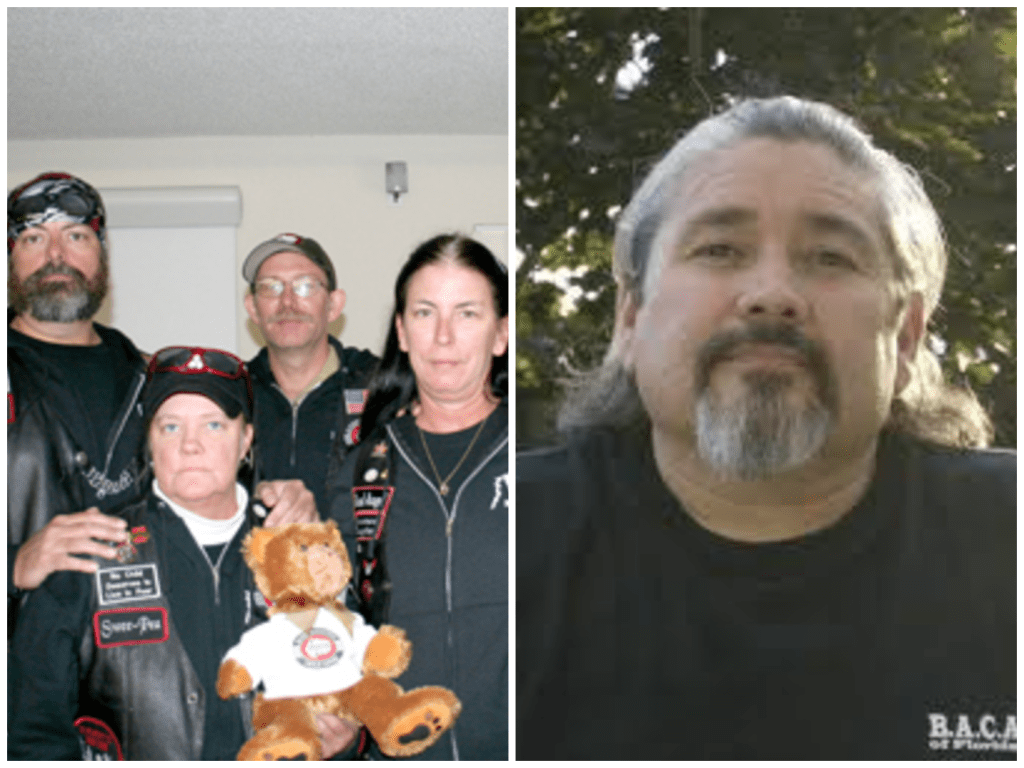
What they do is simple, but deeply powerful. When a child is referred to B.A.C.A. by a therapist or legal agency, the bikers show up. Not to scare the abuser, but to empower the child. The child is introduced to their very own biker family. They get a special vest with a road name, a teddy bear, a nickname, and most importantly—two dedicated members who commit to checking on them regularly, staying in their corner, and giving them someone to call when the nightmares return. It’s not performative. It’s not for show. It’s long-term and loyal.
In cases where the threat is more active, B.A.C.A. enters Level Two support. That’s when they start physically standing guard. If the abuser is out on bail or lives nearby, B.A.C.A. members will literally park their bikes outside a house and stay through the night. They don’t make threats. They don’t break the law. They just sit there—visible, unshakable, and unmistakable. And that alone is often enough.
Then there’s court. For many victims, facing their abuser again is more terrifying than anything. But when you walk into a courtroom surrounded by twenty bikers wearing your name on their vests, that fear starts to shrink. Members sit quietly in the gallery, never interfering, never drawing attention—just being there. Some kids can only testify with those eyes behind them. B.A.C.A. understands that. They become the backbone when a child feels too weak to stand alone.
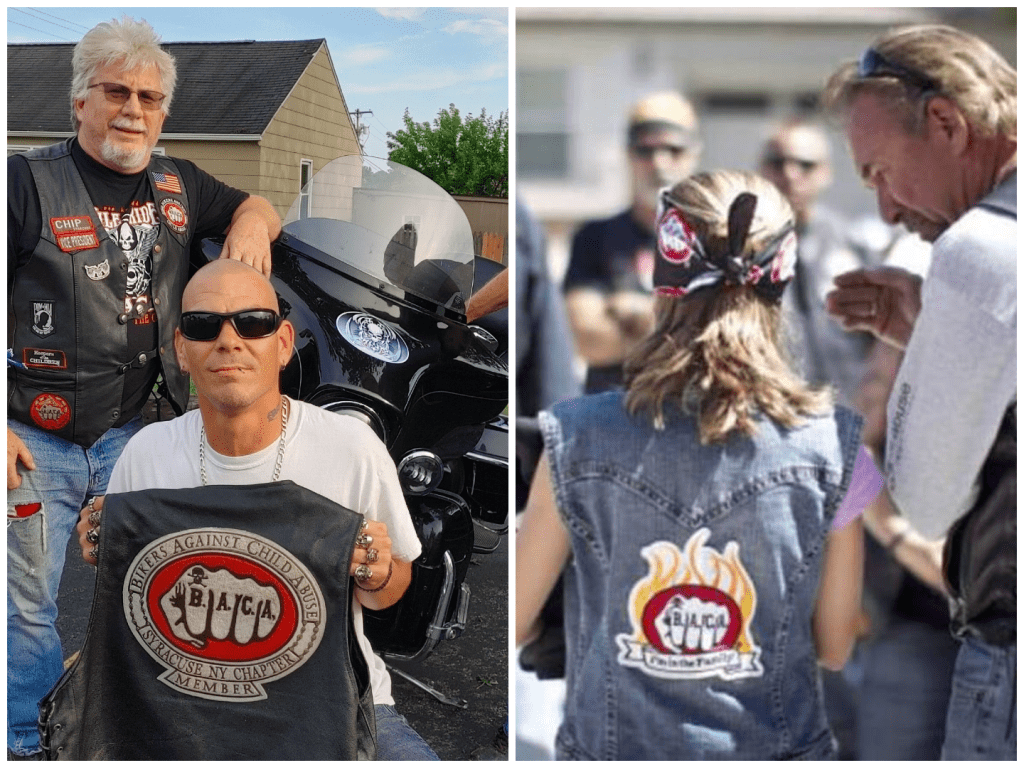
Arizona’s chapters are especially active. In places like Phoenix, Tucson, and the White Mountains, B.A.C.A. riders are a familiar sight to social workers, attorneys, and judges. Some local volunteers have been doing this for over a decade. They attend fundraisers, motorcycle shows, school talks. But they also answer calls in the dead of night when a scared mom says she heard her child’s abuser was spotted on the block. They’ve seen the fear. They’ve seen the damage. And they show up anyway.
There’s something disarming about a tough-looking biker giving a scared child a stuffed bear and asking, “You want me to sit with you until you feel safe again?” These are men and women who know exactly how they’re perceived by society—and they use that to protect instead of intimidate. They know their size, their presence, their sound. And they lend it, on loan, to the smallest among us.
Of course, any group that earns this much respect and trust needs to be above reproach. B.A.C.A. has always made it clear that their members go through intense background checks and must uphold strict behavioral standards. And in the rare cases when someone violates that trust—as happened in a recent incident in Buffalo—the group has responded immediately and publicly. They know that when it comes to children, there is zero room for compromise.
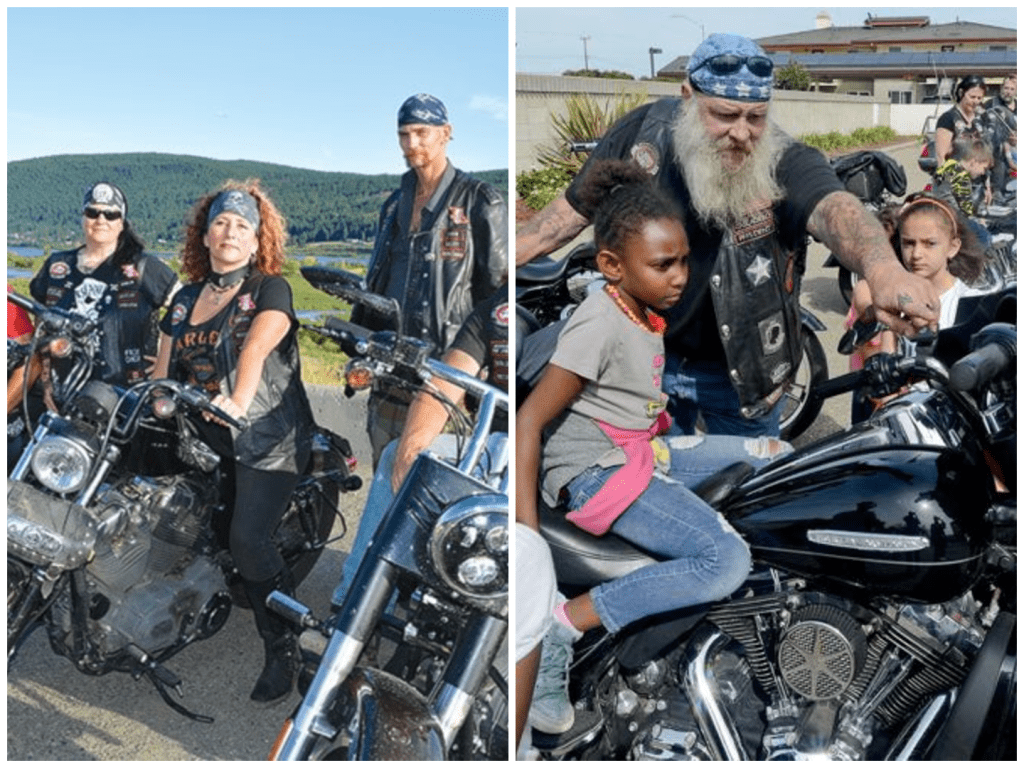
What makes B.A.C.A. so moving isn’t just what they do, but how they do it. They don’t come with press releases. They don’t post on TikTok or monetize their mission. They do it quietly. Respectfully. One child at a time. And while their tactics are unconventional, their impact is undeniable. For kids who have lost faith in adults, B.A.C.A. gives them back something almost spiritual. A sense that someone will protect them. That someone will stand up when others won’t. That even if the legal system moves slow, there’s someone on their side right now.
We live in a world where trust is fragile and institutions fail. But B.A.C.A. reminds us that sometimes, the most unexpected protectors are the ones who show up not because they have to, but because they choose to. They trade roaring engines for whispered courage. They trade steel for compassion. And in doing so, they’ve redefined what it means to ride for something bigger than yourself.
Not all heroes wear capes. Some wear denim, ride loud bikes, and wait outside your window to make sure the monsters never come back.
